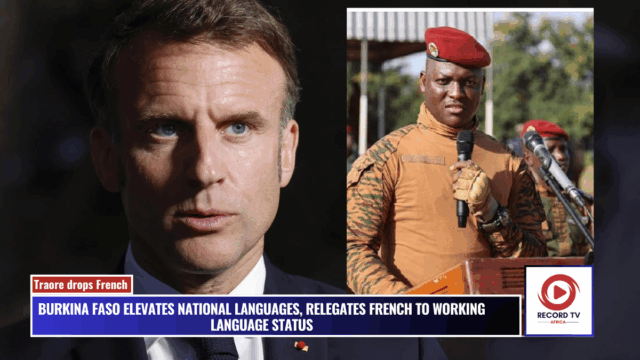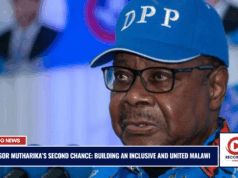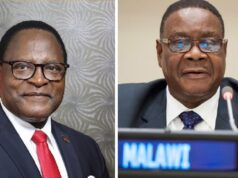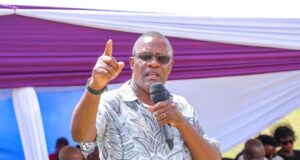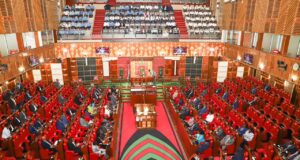In a move reflecting a broader push to decolonize and prioritize indigenous identity, Burkina Faso has removed French as its official language, elevating several national languages to official status.
This significant change, enacted in January 2024, marks a pivotal moment in the country’s cultural and political landscape, aligning with similar reforms in neighboring Mali and signaling a shift in West Africa’s post-colonial framework.
In December 2023, Burkina Faso’s transitional government, led by interim President Captain Ibrahim Traoré, adopted a bill revising the country’s constitution. The amendment, ratified in January 2024, elevated indigenous languages such as Mooré, Dyula, Bissa, and Fula to official status.
French, the language of the former colonial power, was downgraded to a “working language” alongside English. This change effectively ended French’s nearly century-long dominance as the sole official language of Burkina Faso, a status it held since the country’s independence from France in 1960.
The decision was formalized through a constitutional amendment passed by the Transitional Legislative Assembly. According to reports, the reform aims to promote national unity and cultural sovereignty by centering Burkina Faso’s linguistic diversity. Mooré, spoken by approximately 52% of the population, and Dyula, a widely used trade language, are among the most prominent of the 60-plus languages spoken in the country.
Other languages, such as Bissa and Fula, also hold significant regional importance. By recognizing these languages as official, the government seeks to foster inclusivity and empower local communities.
The linguistic reform comes in the context of Burkina Faso’s broader efforts to distance itself from French colonial influence. Since Captain Ibrahim Traoré assumed power in a September 2022 coup, the second in eight months, his administration has pursued policies aimed at asserting national sovereignty. This includes strengthening ties with Mali and Niger, both of which have also taken steps to reduce French influence, and aligning with regional powers like Russia.
The removal of French as the official language mirrors Mali’s 2023 constitutional reform, which similarly elevated national languages and downgraded French.
The decision also responds to growing public sentiment against France’s historical dominance in Burkinabè institutions, education, and governance. French, while widely used in urban areas and official settings, is spoken fluently by only a minority of the population, particularly in rural areas where indigenous languages dominate.
Critics of the former system argued that prioritizing French marginalized non-Francophone citizens and perpetuated colonial legacies. By elevating national languages, the government aims to make governance more accessible and reflective of Burkina Faso’s cultural diversity.
The elevation of national languages to official status is a bold step toward cultural reclamation, but it also presents significant challenges. Implementing multiple official languages in a country with over 60 linguistic groups requires substantial investment in education, translation services, and administrative infrastructure.
Mooré, Dyula, and other languages will need standardized orthographies and expanded use in official documents, legal proceedings, and education systems. The government has yet to outline a comprehensive plan for this transition, raising questions about feasibility and timelines.
French, despite its downgraded status, remains a critical language for international communication, trade, and diplomacy, particularly within the West African Economic and Monetary Union (UEMOA), where French is widely used.
The inclusion of English as a working language alongside French suggests an openness to global engagement, potentially aligning Burkina Faso with Anglophone African nations and diversifying its international partnerships. However, the practical implications of this dual-language approach remain unclear.
French has long been the primary language of instruction in Burkinabè schools, particularly at the secondary and tertiary levels. Shifting to national languages will require retraining teachers, developing curricula, and producing educational materials in multiple languages.
While pilot programs for bilingual education have shown promise in some regions, scaling these efforts nationwide will be a complex and costly endeavor.
Burkina Faso’s linguistic reform is part of a broader regional trend in the Sahel, where countries like Mali and Niger are reevaluating their relationships with France.
The move has been celebrated by Pan-Africanists and advocates of decolonization, who see it as a step toward reclaiming African identity and reducing dependence on former colonial powers.
Posts on X have highlighted the symbolic importance of the reform, with some users framing it as a rejection of “French neocolonialism” and a victory for cultural sovereignty.
However, the reform has also sparked debate. Some argue that prioritizing national languages could complicate governance in a linguistically diverse nation, while others question whether the government’s focus on symbolic changes distracts from pressing issues like security and economic development.
Burkina Faso continues to grapple with jihadist insurgencies and internal displacement, challenges that have strained its resources and governance capacity.


